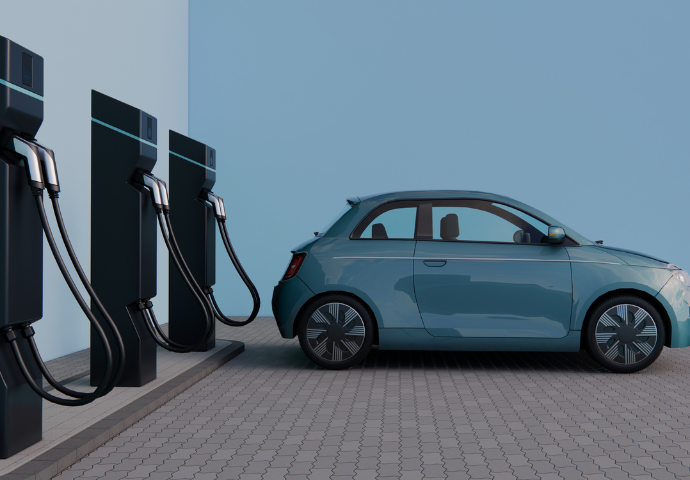Just over a quarter of people in the East of England are less likely to buy an electric vehicle than they were five years ago, according to a survey of 2,000 UK motorists led by Anglia Ruskin University (ARU).
Although price and charging infrastructure are still putting people off buying electric cars, automotive industry expert and ARU academic Tom Stacey believes many of these concerns are unfounded and fuelled by misinformation.
In the survey carried out by OnePoll for Anglia Ruskin University, 26% of people in the East of England said they were less likely to consider buying one than they were five years ago, the highest percentage of any region in England. The same percentage said they were more likely to consider buying one than they were five years ago, suggesting drivers in the region still need persuading to transition to electric vehicles.
The Government plans to phase out the sales of new petrol and diesel cars by 2035.
In the East, 53% said price was the main barrier standing between them and purchasing an electric vehicle, higher than the UK average of 50%. A total of 13% in the region (17% across the UK) cited a lack of charging infrastructure such as public charging points as being the main issue. Only 3% said that safety was the biggest issue.
Stacey, Deputy Head of the School of Economics, Finance and Law at ARU, said that the price of electric vehicles has actually fallen significantly in the past decade: “Electric vehicles were initially expensive – brands like Tesla are associated with these vehicles and 10 years ago one of those cars set you back £100k, so the public has understandably always associated electric vehicles with high prices.
“A decade later, if you want a mainstream, reasonably good, electric car such as the MG4, it will cost £26k. The cheapest Ford Focus is about £28k, so actually the electric car is cheaper there.
“In terms of charging infrastructure, thousands of charging points have been installed every month for the past five years, and the number of charging locations now stands at more than 31,000 in the UK – vastly outnumbering the 8,300 petrol stations.”
Recent figures show new electric vehicle registrations by private buyers fell by a quarter in January, and concerns about sales have resulted in calls for more policies to encourage their use. In the ARU survey, just over a third of motorists in the East said there should be more policies and regulations to encourage people to make the transition to electric vehicles.
When it came to helping the UK reach its net zero carbon goal, around 35% of motorists in the region agreed that an electric car would be the most significant contribution they could make as an individual. However, 25% of motorists in the East of England who said they were unlikely to purchase an electric vehicle also rejected the UK’s target of net zero carbon emissions – the highest in the country.
“A third of carbon emissions in the developed world come from vehicles. Petrol cars need to convert oil into fuel, which uses emissions before you’ve turned a wheel. Electric cars absolutely need to be part of the discussion about net zero carbon,” added Stacey.
Image: grafismedia from grafis media, Canva



